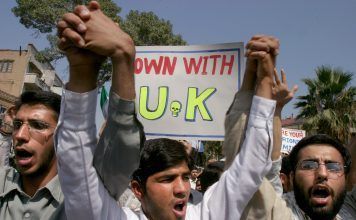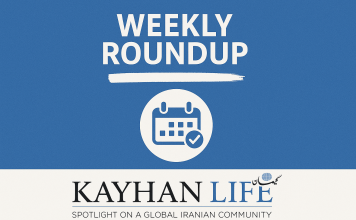Dr. Mai Sato, an associate professor at the prestigious Monash University in Australia, has been appointed as the next United Nations Special Rapporteur on human rights in Iran by the UN Human Rights Council.
Sato will begin her mandate on Aug. 1 and will succeed Dr. Javaid Rehman, a fearless advocate of upholding human rights in Iran, who worked as the rapporteur for the maximum six-year term.
#HRC56 | The @UN Human Rights Council has appointed Mai Sato (@drmaisato / Japan) as Special Rapporteur on the situation of human rights in the Islamic Republic of #Iran. pic.twitter.com/xnKb8lxTD7
— United Nations Human Rights Council (@UN_HRC) July 12, 2024
She will meet UN member states at the UN General Assembly in October and will provide her first report to the council in March 2025.
Sato, a social scientist from Japan, holds a PhD from King’s College London and previously worked at the University of Reading, the University of Oxford, and the Institute for Criminal Policy Research in the UK.
Her work has focused on the use of the death penalty in India, Japan, Kenya, Malaysia, the Philippines and Zimbabwe. She also founded CrimeInfo, a non-governmental organization which promotes the abolition of the death penalty in Japan. She received the Young Criminologist Award from the Japan Association of Sociological Criminology for her 2014 book “Death Penalty in Japan.”
The Islamic Republic is known for its systemic use of the death penalty. It is the second most active country after China for its use of the death penalty and is the world’s most active executioner of women and children. It is likely that Sato will investigate this form of punishment in Iran and make it a central part of her work as rapporteur.
“My human rights research focuses on maximizing the integrity of justice systems, particularly concerning the death penalty and the legitimacy of courts and police,” Sato said in her official application for the role, which was published on the council’s website.
“My work is particularly relevant to the human rights situation in Iran,” she said. “I will endeavor to contribute to the greater observance of human rights by monitoring and investigating human rights violations in Iran, raising public awareness, and acting on individual cases of reported violations. While acknowledging past limitations in conducting country visits, I remain committed to engaging in constructive dialogue, mindful that the aim is to bolster Iran’s capacity to comply with human rights obligations for all Iranians.”
Sato’s work on Iran includes a forthcoming 2024 publication titled “Normative legitimacy of Iran’s capital drug law and its application” co-authored by Sato and Leavides Cabarrubias, and participation in a 2023 event about violence against women and children in Iran, organized by Australia’s Joint Standing Committee on Foreign Affairs, Defence and Trade, Human Rights Subcommittee.
The newly elected rapporteur is highly respected among academics and human rights bodies.
“Mai is an incredibly dedicated and compassionate anti-death penalty advocate who has done an enormous amount of work in Australia and elsewhere to draw attention to the issue of capital punishment, including in Iran,” Professor Kylie Moore-Gilbert, an Australian academic previously detained in the Islamic Republic told Iran International on July 11.
Sato’s predecessor Rehman was widely respected by UN colleagues, human rights organizations and lawyers for his meticulous UN reports and evidence gathering. He became more vocal about the state of human rights in Iran during his tenure as rapporteur, and grew increasingly concerned by the Iranian government’s use of the death penalty, particularly against women and children.
“There are extensive, vague and arbitrary grounds in Iran for imposing the death sentence, which quickly can turn this punishment into a political tool,” Rehman told the UN General Assembly in 2021 as he delivered his fourth annual report. “In addition, the structural flaws of the justice system are so deep and at odds with the notion of rule of law that one can barely speak of a justice system,” he said. “The entrenched flaws in law and in the administration of the death penalty in Iran mean that most, if not all, executions are an arbitrary deprivation of life.”
Rehman’s stance on the state of human rights in Iran drew ongoing criticisms from Iranian officials, who accused him of furthering a Western agenda in the Middle East and questioned the truthfulness of his reports.













